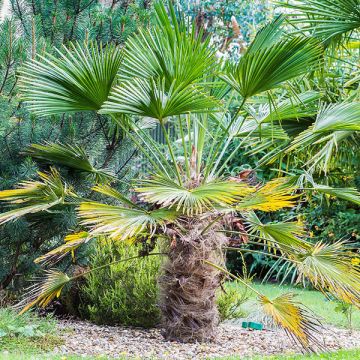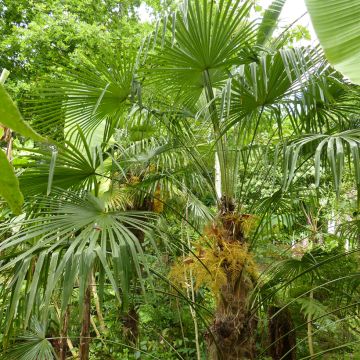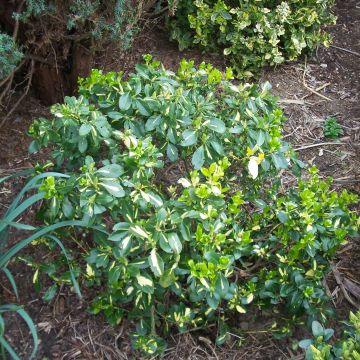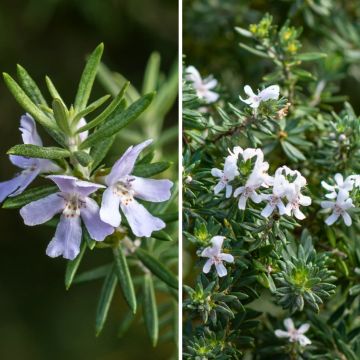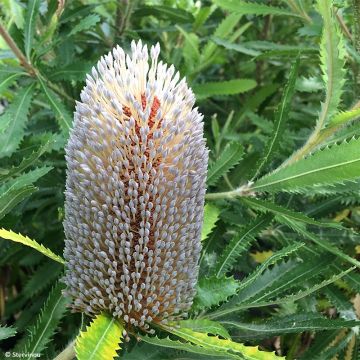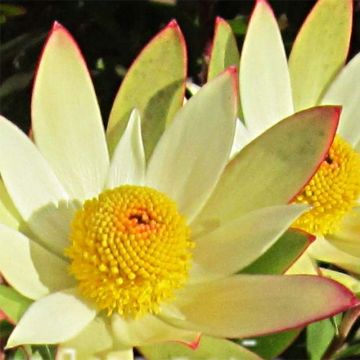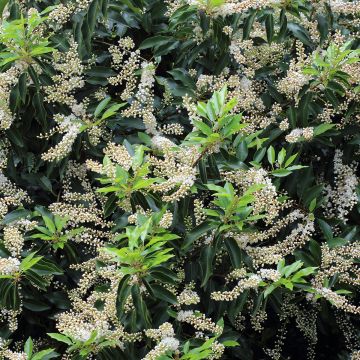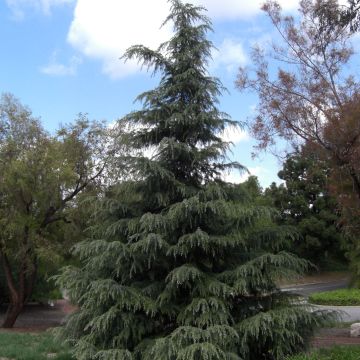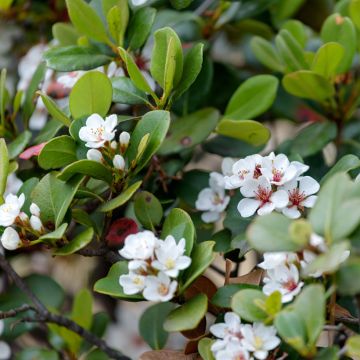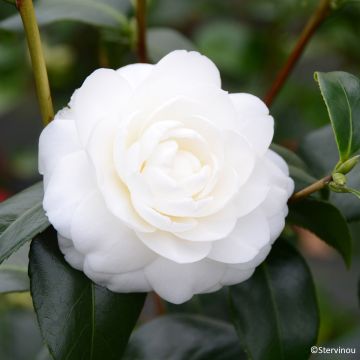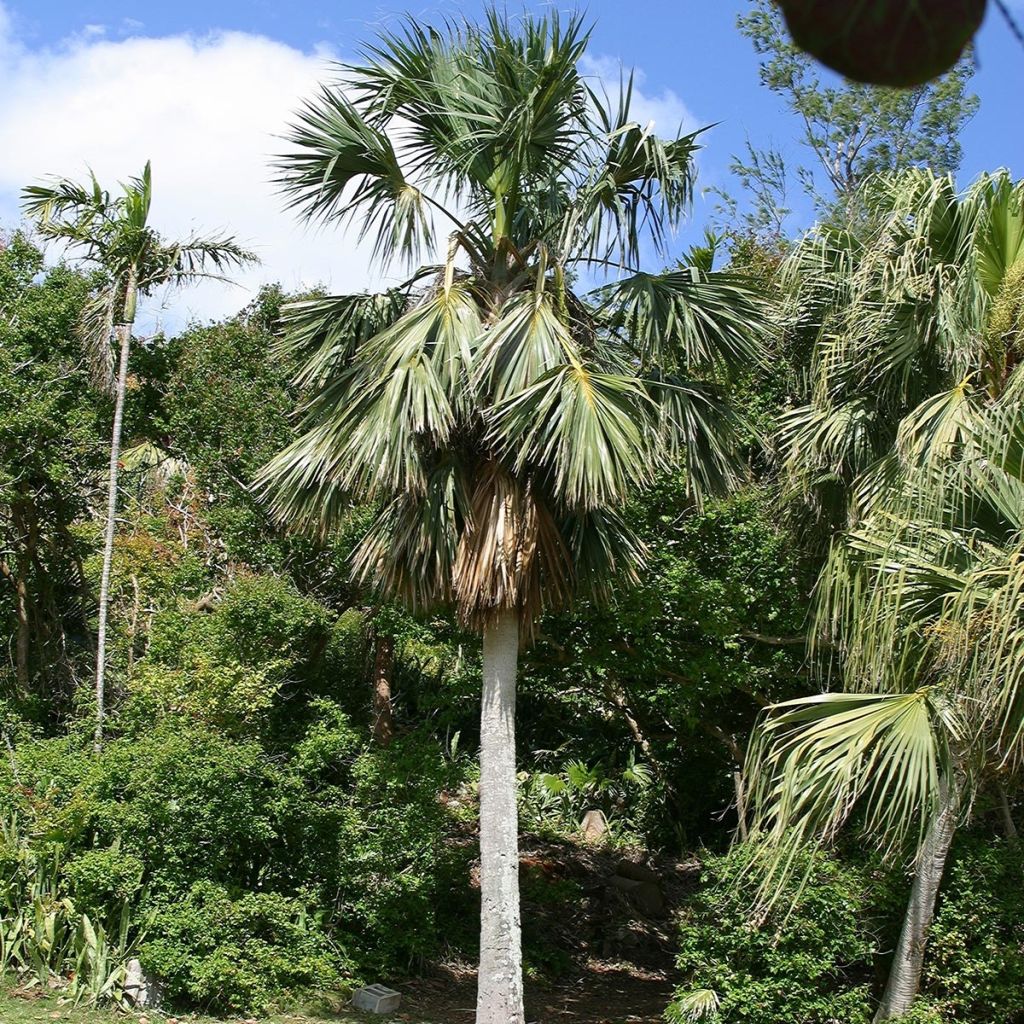

Sabal bermudana - Palmier des Bermudes
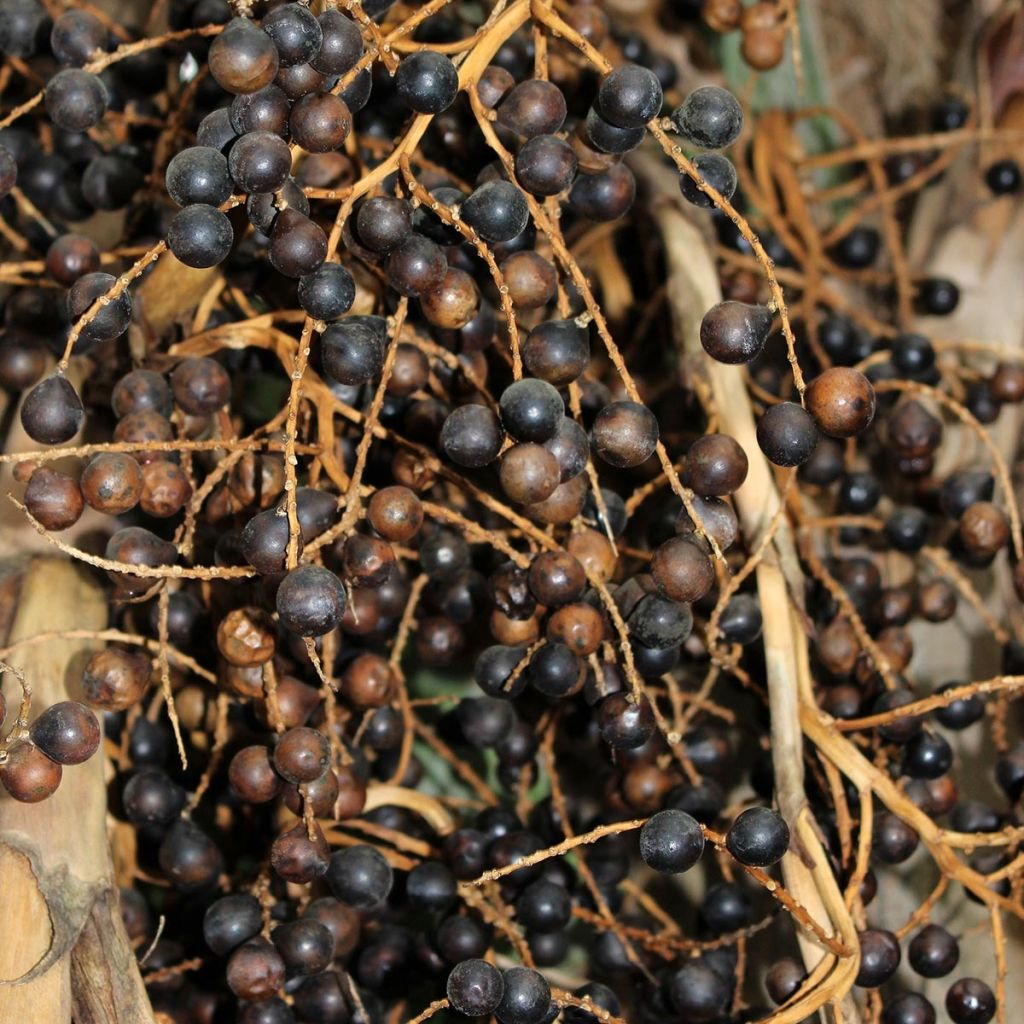

Sabal bermudana - Palmier des Bermudes
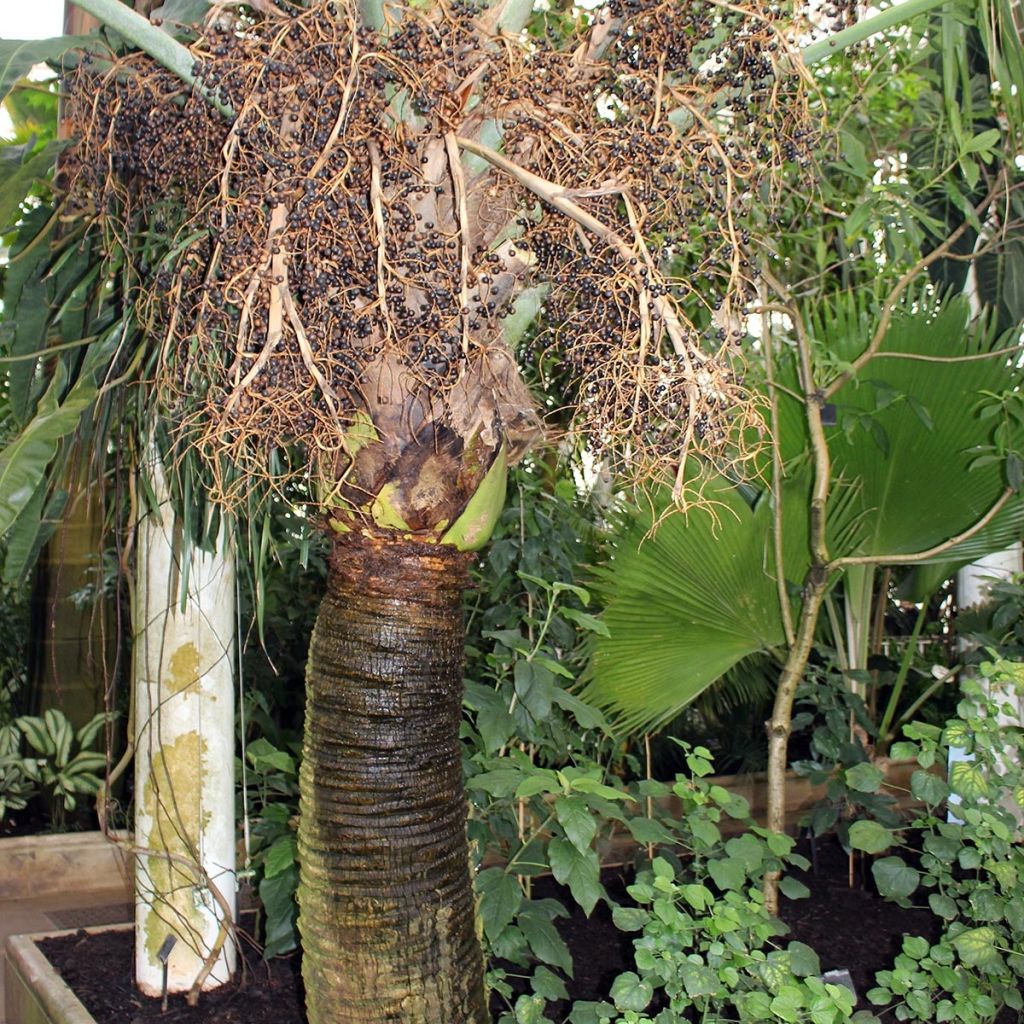

Sabal bermudana - Palmier des Bermudes
Sabal bermudana - Bermuda Palm
Sabal bermudana
Bermuda Palmetto, Bermuda Palm
Special offer!
Receive a €20 voucher for any order over €90 (excluding delivery costs, credit notes, and plastic-free options)!
1- Add your favorite plants to your cart.
2- Once you have reached €90, confirm your order (you can even choose the delivery date!).
3- As soon as your order is shipped, you will receive an email containing your voucher code, valid for 3 months (90 days).
Your voucher is unique and can only be used once, for any order with a minimum value of €20, excluding delivery costs.
Can be combined with other current offers, non-divisible and non-refundable.
Why not try an alternative variety in stock?
View all →This plant carries a 24 months recovery warranty
More information
We guarantee the quality of our plants for a full growing cycle, and will replace at our expense any plant that fails to recover under normal climatic and planting conditions.
Would this plant suit my garden?
Set up your Plantfit profile →
Description
Sabal bermudana, similar to Sabal palmetto, is a spectacular, vigorous, and highly ornamental palm tree, surprisingly hardy despite its origins. Its majestic silhouette consists of a trunk adorned with original geometric patterns, bearing a crown of large fan-shaped leaves. The leaf segments are wide and have a bluish-green colour on the underside, but a vibrant green colour on the upper side. Although it can withstand temperatures as low as -10°C (14°F), or even lower for mature plants planted in well-drained soil, this Bermudan palm tree prefers the mildness of the sea and the warmth of long Mediterranean summers but still requires some moisture at its base. It is an exceptional plant for Mediterranean gardens.
Sabal bermudana belongs to the family of Arecaceae. It is endemic to Bermuda, found in both dry soil and marshy areas. This palm tree, which can reach a height of 12 to 14 m (39 to 46 ft), has relatively slow growth during the first few years, which then accelerates. In fertile soil and with regular watering from May to September, its growth will be optimal. This Sabal will grow much slower in dry soil or gardens without irrigation.
It develops a single straight false trunk (stipe), thickened at the base and sometimes reaching a diameter of 35 cm (14 in). It has a grey colour and a woven appearance. The stipe forms after 10 to 12 years. The ornamental patterns, characteristic of this species, are the remnants of the old dried petioles. The foliage is arranged in a terminal crown at the top of the stipe, eventually reaching a span of 5 m (16 ft). The crown consists of 15 to 25 highly costapalmate leaves, meaning palmate leaves arranged in a fan shape around a central axis. In the case of the Sabal bermudana, each leaf, measuring 1.50 to 2 m (5 to 7 ft) in width, has a beautiful green-blue colour on the underside and a more glaucous colour on the upper side. It is divided into 80 to 90 rigid, wide, erect segments, cut at the base halfway along their length, and carried by a very robust petiole, reaching a length of 2 m (7ft).
The flowering, which occurs on mature individuals, consists of bisexual flowers capable of producing fruits. The inflorescence, curved, emerges every summer between the large leaves. It can reach a length of 2 m (7 ft). It bears many small whitish, fragrant, and nectar-producing flowers, which, in favourable climates, give rise to round fruits with a brown colour. Each fruit contains a black seed, shaped like a flattened pear and measuring about 1 cm (1 in) in diameter. This fresh seed will germinate after 5 to 6 months.
Highly appreciated as a specimen plant to be planted individually in coastal gardens, or in rows, especially in warm climates, the Bermuda Palm is one of the most majestic palm species, along with the Jubaea chilensis and the Phoenix canariensis. Its quite respectable hardiness actually depends a lot on soil drainage and ambient humidity. In mild climates, it is irreplaceable and prestigious, but it can also be grown in a large container for a few years in other regions. During winter, it should be stored in a cool, well-lit, and well-ventilated space. Planted near an entrance or on either side of a gate, or placed individually near a swimming pool, it will look superb.
Report an error about the product description
Sabal bermudana - Bermuda Palm in pictures
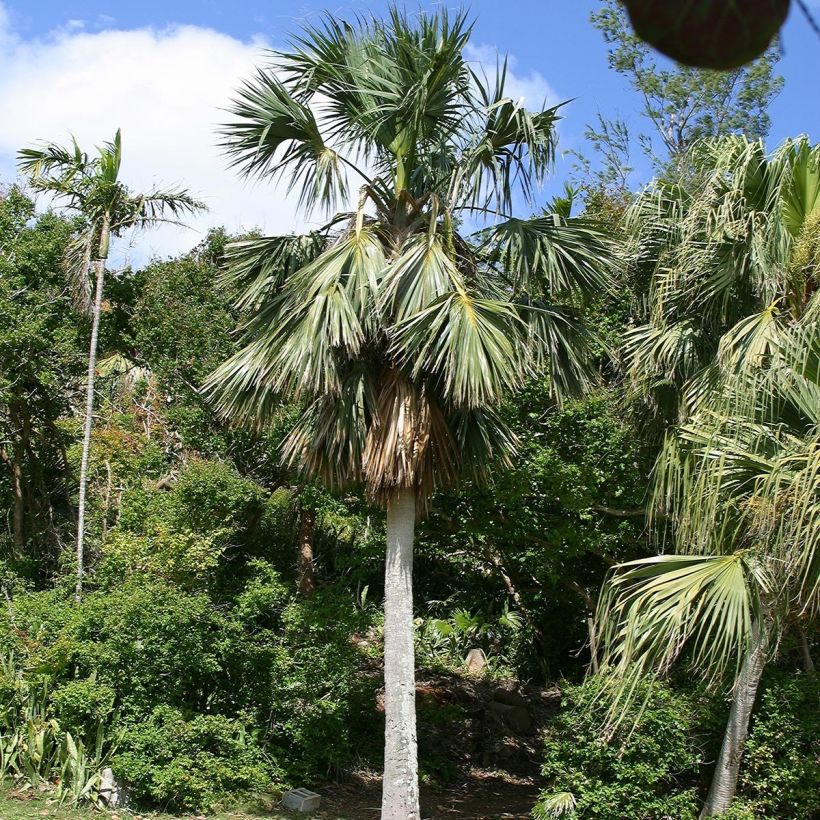

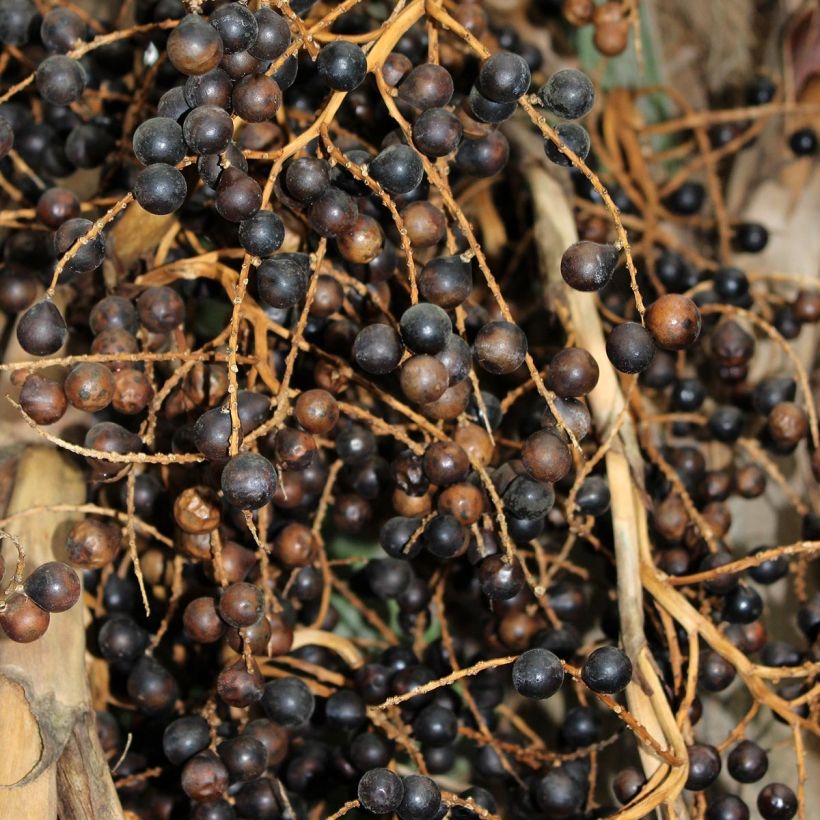

Plant habit
Flowering
Foliage
Botanical data
Sabal
bermudana
Arecaceae
Bermuda Palmetto, Bermuda Palm
North America
Other Sabal
View all →Planting and care
This palm tree shows slow growth, especially during its first 8 or 10 years, and requires sun and warmth that will promote faster development. Plant Sabal bermudana in the ground in warm and not too harsh climates, or in a very large pot in other regions. Install it in a well-drained, light, deep, and fertile soil. A moist soil will promote faster growth, but this accommodating species also accepts drier soils. Choose the warmest and sunniest spot in the garden. Regular watering in summer promotes growth. Plant it in a very sunny location and protect it from cold and dry winds. It requires little maintenance except for pruning the oldest palmate leaves close to the stem.
Planting period
Intended location
Care
This item has not been reviewed yet - be the first to leave a review about it.
Similar products
Haven't found what you were looking for?
Hardiness is the lowest winter temperature a plant can endure without suffering serious damage or even dying. However, hardiness is affected by location (a sheltered area, such as a patio), protection (winter cover) and soil type (hardiness is improved by well-drained soil).

Photo Sharing Terms & Conditions
In order to encourage gardeners to interact and share their experiences, Promesse de fleurs offers various media enabling content to be uploaded onto its Site - in particular via the ‘Photo sharing’ module.
The User agrees to refrain from:
- Posting any content that is illegal, prejudicial, insulting, racist, inciteful to hatred, revisionist, contrary to public decency, that infringes on privacy or on the privacy rights of third parties, in particular the publicity rights of persons and goods, intellectual property rights, or the right to privacy.
- Submitting content on behalf of a third party;
- Impersonate the identity of a third party and/or publish any personal information about a third party;
In general, the User undertakes to refrain from any unethical behaviour.
All Content (in particular text, comments, files, images, photos, videos, creative works, etc.), which may be subject to property or intellectual property rights, image or other private rights, shall remain the property of the User, subject to the limited rights granted by the terms of the licence granted by Promesse de fleurs as stated below. Users are at liberty to publish or not to publish such Content on the Site, notably via the ‘Photo Sharing’ facility, and accept that this Content shall be made public and freely accessible, notably on the Internet.
Users further acknowledge, undertake to have ,and guarantee that they hold all necessary rights and permissions to publish such material on the Site, in particular with regard to the legislation in force pertaining to any privacy, property, intellectual property, image, or contractual rights, or rights of any other nature. By publishing such Content on the Site, Users acknowledge accepting full liability as publishers of the Content within the meaning of the law, and grant Promesse de fleurs, free of charge, an inclusive, worldwide licence for the said Content for the entire duration of its publication, including all reproduction, representation, up/downloading, displaying, performing, transmission, and storage rights.
Users also grant permission for their name to be linked to the Content and accept that this link may not always be made available.
By engaging in posting material, Users consent to their Content becoming automatically accessible on the Internet, in particular on other sites and/or blogs and/or web pages of the Promesse de fleurs site, including in particular social pages and the Promesse de fleurs catalogue.
Users may secure the removal of entrusted content free of charge by issuing a simple request via our contact form.
The flowering period indicated on our website applies to countries and regions located in USDA zone 8 (France, the United Kingdom, Ireland, the Netherlands, etc.)
It will vary according to where you live:
- In zones 9 to 10 (Italy, Spain, Greece, etc.), flowering will occur about 2 to 4 weeks earlier.
- In zones 6 to 7 (Germany, Poland, Slovenia, and lower mountainous regions), flowering will be delayed by 2 to 3 weeks.
- In zone 5 (Central Europe, Scandinavia), blooming will be delayed by 3 to 5 weeks.
In temperate climates, pruning of spring-flowering shrubs (forsythia, spireas, etc.) should be done just after flowering.
Pruning of summer-flowering shrubs (Indian Lilac, Perovskia, etc.) can be done in winter or spring.
In cold regions as well as with frost-sensitive plants, avoid pruning too early when severe frosts may still occur.
The planting period indicated on our website applies to countries and regions located in USDA zone 8 (France, United Kingdom, Ireland, Netherlands).
It will vary according to where you live:
- In Mediterranean zones (Marseille, Madrid, Milan, etc.), autumn and winter are the best planting periods.
- In continental zones (Strasbourg, Munich, Vienna, etc.), delay planting by 2 to 3 weeks in spring and bring it forward by 2 to 4 weeks in autumn.
- In mountainous regions (the Alps, Pyrenees, Carpathians, etc.), it is best to plant in late spring (May-June) or late summer (August-September).
The harvesting period indicated on our website applies to countries and regions in USDA zone 8 (France, England, Ireland, the Netherlands).
In colder areas (Scandinavia, Poland, Austria...) fruit and vegetable harvests are likely to be delayed by 3-4 weeks.
In warmer areas (Italy, Spain, Greece, etc.), harvesting will probably take place earlier, depending on weather conditions.
The sowing periods indicated on our website apply to countries and regions within USDA Zone 8 (France, UK, Ireland, Netherlands).
In colder areas (Scandinavia, Poland, Austria...), delay any outdoor sowing by 3-4 weeks, or sow under glass.
In warmer climes (Italy, Spain, Greece, etc.), bring outdoor sowing forward by a few weeks.






























